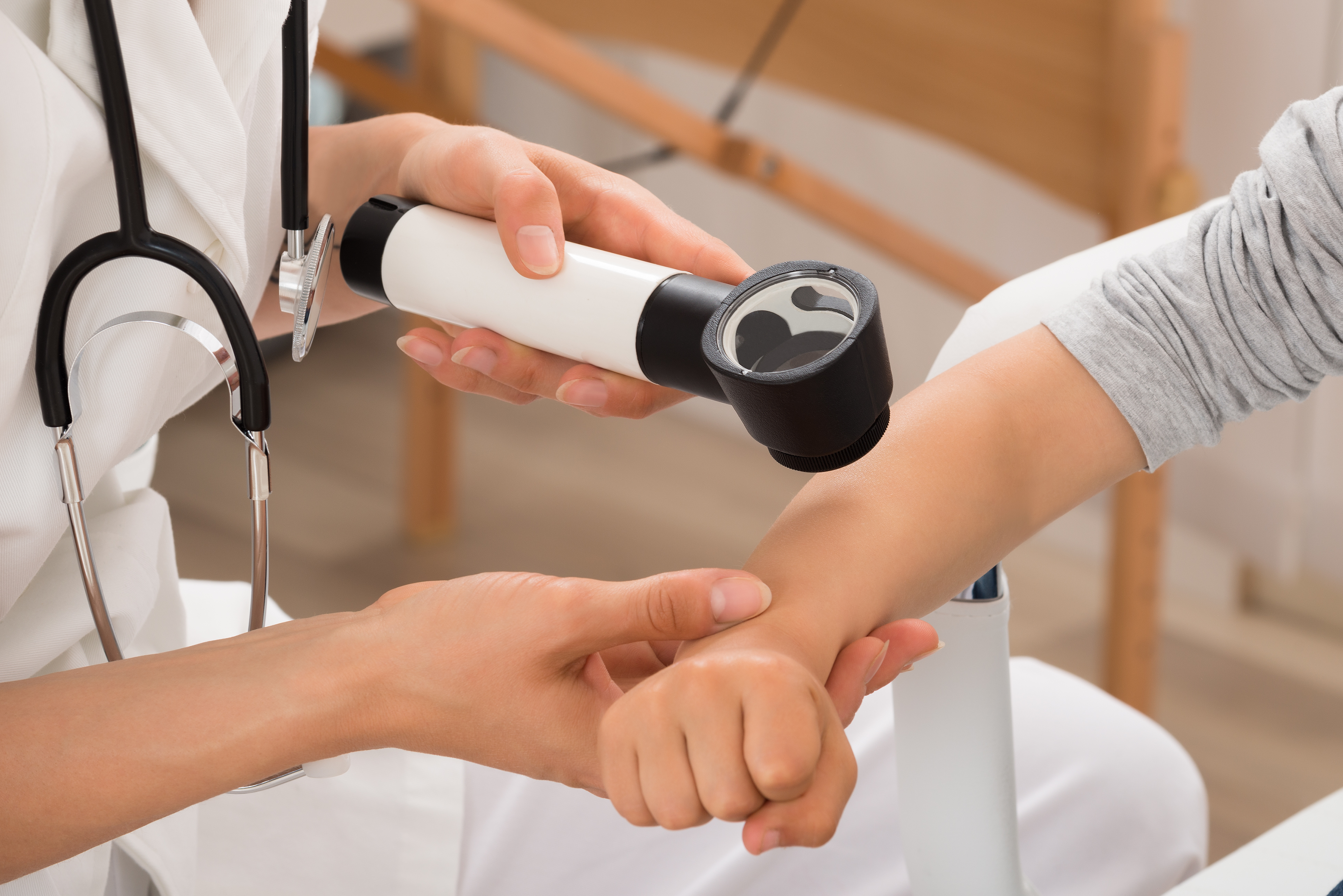If you want to avoid an allergic reaction, it helps to know what you’re allergic to. Skin testing is a safe and fairly easy way for us to try to figure out or confirm what’s causing your symptoms.
Skin tests use extracts — a concentrated liquid form — of common allergens like pollen, mold, dust mites, animal dander, and foods. Once the allergen gets in your skin, it could trigger a rash. Your skin will get irritated and may itch, like a mosquito bite.
That reaction is how we can tell you’re allergic to a substance. When you have an allergy, your immune system will make antibodies and set off chemicals to fight the unwelcome invader.
Make an appointment today! Call us at (954) 450-3550
What Happens During a Skin Test?
The steps vary depending on what type of test you’re having. There are three main ways to get allergens to react with your skin.
Scratch Test
Also known as a Puncture or Prick Test.
First, we will look at the skin on your forearm or back and clean it with alcohol. We’ll mark and label areas on your skin with a pen. Then we’ll place a drop of a potential allergen on each of those spots. Next, we’ll prick the outer layer of your skin to let the allergen in. (It’s not a shot, and it won’t make you bleed.)
Intradermal Test
After we look at and clean your skin, we will inject a small amount of allergen just under your skin, similar to a tuberculosis test.
Patch Test
We put an allergen on a patch and then stick that on your arm or back.
What’s Next?
Plan for an hour-long appointment. The pricking part of scratch and intradermal tests takes about 5 to 10 minutes. Then you’ll wait about 15 minutes to see how your skin reacts.
Patch tests take more time, and two visits tous. You’ll have to wear a patch for about 48 hours in case you have a delayed reaction to the allergen.
Tell your us about all medicines you’re taking, including over-the-counter products. Some drugs can interfere with the results, so your we will give you a list of medicines to avoid before the test.
If you can’t stop taking a medication, we may do a separate test to find out if that drug will interfere with the results.
Since allergy medicines, such as OTC antihistamines, stop allergic reactions, you shouldn’t take them for a few days before your test. You need to let your body react to the allergens in the test.
Is It Safe?
A skin test may be mildly irritating, but most people say it doesn’t hurt. Although you’re coming into contact with things you could be allergic to, they’re very small amounts. An allergy skin test is safe when done the right way.
Whole-body reactions to skin testing are rare, but let us know right away if you have:
- Fever
- Lightheadedness
- Trouble breathing
- A widespread rash
- Swelling on your face, lips, or mouth
- A hard time swallowing
After Your Skin Test
We will clean any extracts and ink marks off your skin with alcohol. You may need to apply a mild cortisone cream to relieve itching.
If you’re having a patch test done, you’ll go home with bandages on your skin. Don’t get these areas wet — no baths or swimming. When you go back to the doctor in a couple of days, he’ll take another look at your skin.
We will use the results of your test to come up with a treatment plan for you.
Make an appointment today! Call us at (954) 450-3550

